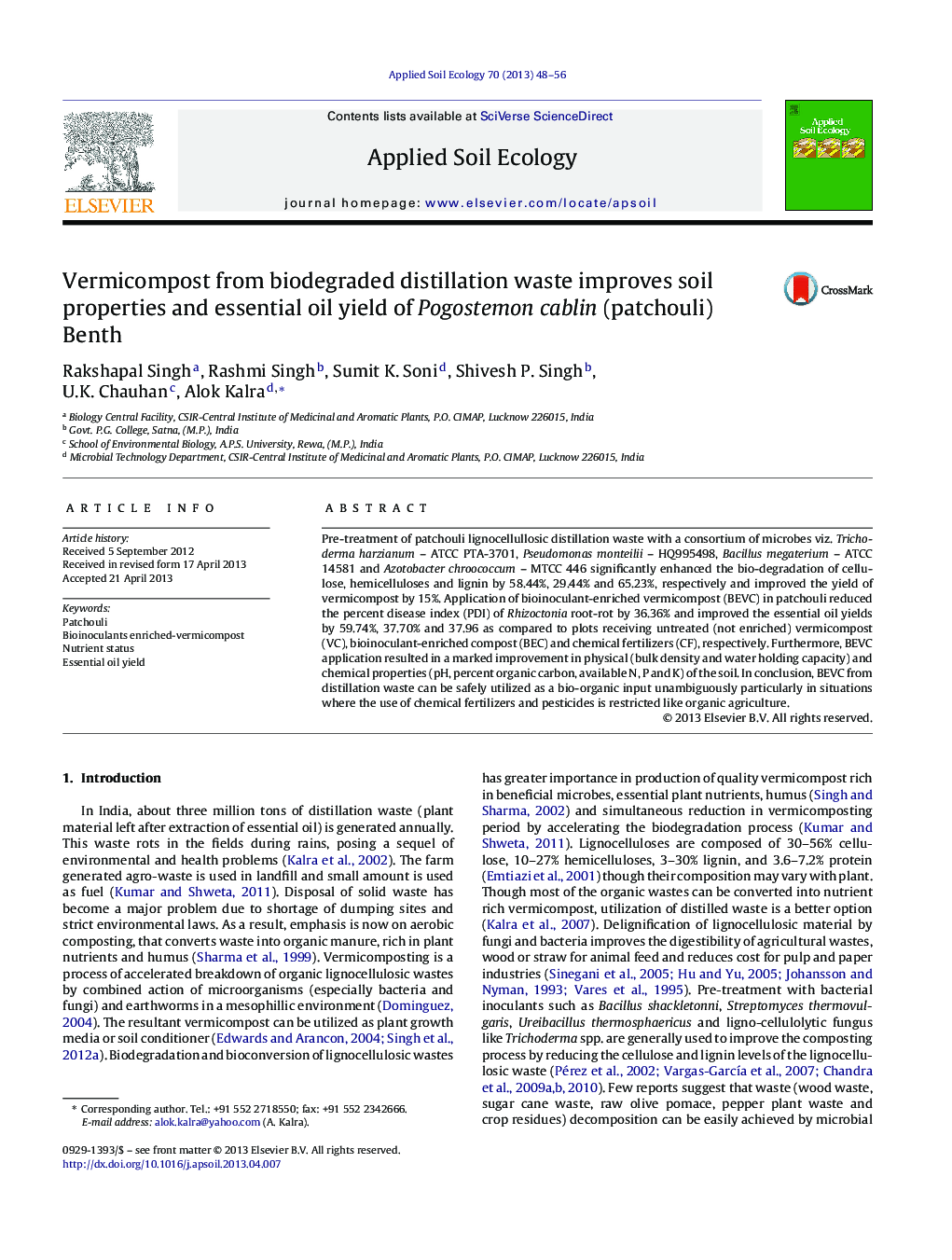| کد مقاله | کد نشریه | سال انتشار | مقاله انگلیسی | نسخه تمام متن |
|---|---|---|---|---|
| 4382402 | 1617813 | 2013 | 9 صفحه PDF | دانلود رایگان |

• Efforts were made to produce bioinoculants enriched vermicompost.
• Selected bioinoculants were cellulase producer, antagonist and growth promoter.
• Pre-treatment with microbial consortium significantly enhanced the degradation.
• Resultant enriched vermicompost reduced root-rot and improved the essential oil yields.
• Application of vermicompost resulted in a marked improvement in soil health.
Pre-treatment of patchouli lignocellullosic distillation waste with a consortium of microbes viz. Trichoderma harzianum – ATCC PTA-3701, Pseudomonas monteilii – HQ995498, Bacillus megaterium – ATCC 14581 and Azotobacter chroococcum – MTCC 446 significantly enhanced the bio-degradation of cellulose, hemicelluloses and lignin by 58.44%, 29.44% and 65.23%, respectively and improved the yield of vermicompost by 15%. Application of bioinoculant-enriched vermicompost (BEVC) in patchouli reduced the percent disease index (PDI) of Rhizoctonia root-rot by 36.36% and improved the essential oil yields by 59.74%, 37.70% and 37.96 as compared to plots receiving untreated (not enriched) vermicompost (VC), bioinoculant-enriched compost (BEC) and chemical fertilizers (CF), respectively. Furthermore, BEVC application resulted in a marked improvement in physical (bulk density and water holding capacity) and chemical properties (pH, percent organic carbon, available N, P and K) of the soil. In conclusion, BEVC from distillation waste can be safely utilized as a bio-organic input unambiguously particularly in situations where the use of chemical fertilizers and pesticides is restricted like organic agriculture.
Journal: Applied Soil Ecology - Volume 70, August 2013, Pages 48–56